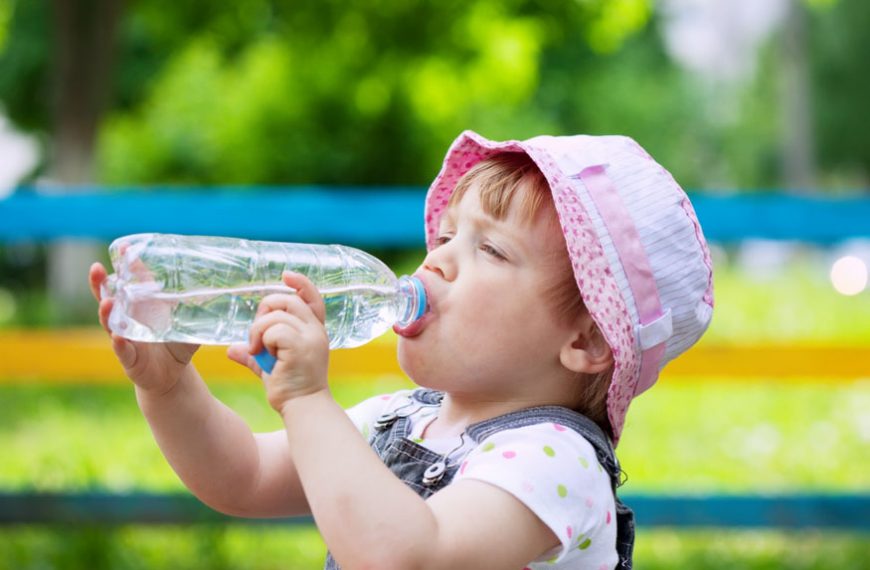Understanding Toddler Dehydration
Dehydration, a shadowy menace, lurks on the fringes of a toddler’s life, sneaking in when least expected. It’s essential to comprehend this potentially vexing problem, particularly the signs of dehydration in toddlers. Your innocent toddler’s energy is like the blazing sun, and yet, like that sun, they can easily lose moisture, leading to toddler dehydration symptoms.
What Causes Dehydration in Toddlers?
Dehydration, especially in toddlers, is a concern that parents, caregivers, and medical practitioners are keen to address. Its root causes are varied, and understanding each can help prevent its occurrence.
- Heat Exposure:
- Illness:
- Not Drinking Enough:
We often underestimate the sun’s might, especially when we think of its effects on our young ones. The phrase, “If you can’t stand the heat, get out of the kitchen,” while light-hearted, holds profound truth about the need to keep our children cool. For toddlers, who have a higher surface area to volume ratio, their bodies lose water faster than adults. Just as the blazing desert sun has the power to evaporate the last vestiges of water from an oasis, similarly, the sweltering heat of summer days can rapidly zap the moisture from our toddlers, making them more susceptible to dehydration.
It is the silent thief of childhood glee. Illnesses, particularly those that lead to increased body temperature, diarrhoea, or vomiting, can deplete the body’s water resources at an alarming rate. Consider this analogy: a sponge, fully soaked and heavy with water, when twisted or wrung out, releases its held moisture. Similarly, when a toddler is ill, the disease acts as that force, expelling the vital fluids from their body, often faster than they can be replenished.
Sometimes, the reasons are far less complex. Toddlers, with their boundless energy and insatiable curiosity, can often forget to drink or might refuse liquids due to fussiness or distractions. It’s akin to a pitcher gradually depleting, drop by drop, until it’s hollow and dry. Without regular replenishing, the balance of hydration in their bodies tips towards dehydration.
7 Toddler Dehydration Symptoms
Awareness of the symptoms is as crucial as knowing the causes. Each sign, each symptom, resonates like a note in a haunting melody, warning caregivers of the lurking danger.
- Decreased Urination:
- Dry Mouth and Tongue:
- Crying Without Tears:
- Fatigue or Irritability:
- Dry Skin:
- Sunken Eyes:
- Rapid Breathing or Heartbeat:
A tangible and often first-noticed sign. For parents and caregivers, those wet diapers or frequent trips to the restroom are more than just routine; they are indicators of a child’s hydration level. When these become infrequent, it’s a signal, much like a once gushing river turning into a mere trickle, revealing the onset of dehydration.
Kiss your toddler’s forehead, feel their lips, and you’ll often gauge their health. A dry mouth, lips, and tongue are indicators of reduced saliva production, which in turn signals dehydration. Like fertile land turned arid, waiting for a touch of rain, their little mouths too await hydration.
Tears are more than expressions of discomfort or sadness; they are an indicator of hydration levels. When a toddler cries without tears, it’s like a cloud heavy with promise but delivering no rain—a clear warning of dehydration.
From a distance, a drooping, wilted flower might merely seem at rest, but up close, the need for water is evident. Similarly, a toddler, usually bustling with energy, if found fatigued, listless, or irritable, indicates a possible lack of hydration. Their zest, their energy, is muted by the lack of essential fluids.
Our skin, a protective barrier, also acts as a communicator. In toddlers, skin elasticity is a quick test for dehydration. If it feels dry, stretched, and doesn’t quickly return to normal when pinched and released, it’s an urgent whisper of the body’s craving for water.
Eyes, they say, are windows to the soul. In medical terms, they are windows to a body’s hydration status. Sunken eyes, with a hollow, shadowy appearance, are like dried-up wells, signalling a dearth of moisture within.
Finally, when the body is desperate, it sends out frantic signals. A racing heart or rapid breathing in a toddler not exerting physically is akin to the alarming clang of a bell, urging immediate attention and action.
In summary, understanding dehydration’s causes and symptoms in toddlers is paramount. With awareness comes the power of prevention and timely intervention, ensuring our little ones remain the vibrant, energetic souls they are meant to be.
Home Remedies for dehydration in toddlers
So, you’ve identified the signs, now what? Let’s meander through the garden of home remedies for dehydration in toddlers:
Oral Rehydration Solutions (ORS): These are like magic potions, blending the perfect mix of salts and sugars to replenish a toddler’s fluids. Picture it as a drought-stricken field’s first refreshing rain.
Increase Fluid Intake: Offer water, but in small, frequent sips. It’s like nurturing a sapling with droplets of life.
Fruits with High Water Content: Think watermelons, cucumbers, and oranges. Like a hidden oasis in a desert, these fruits can be refreshing.
Cool Baths: As refreshing as a mountain spring, a cool bath can help bring down the body temperature and restore some of the lost moisture.
Breastfeeding: If the toddler is still breastfeeding, continue. Mother’s milk is like nature’s elixir, finely balanced for hydration and nutrition.
But remember, home remedies, though powerful, are the first line of defence. If toddler dehydration symptoms persist or seem severe, always rush to a medical professional. It’s like seeking an expert gardener when the plants don’t respond to regular care.
In summary, understanding the causes and signs of dehydration in toddlers is paramount. Let us consider the example of Ria. Ria, a lively three-year-old with a penchant for the outdoors, once fell prey to dehydration after a long day of play under the sun. Her mother noticed the subtle changes: the lack of tears, the fatigue, and immediately knew what was amiss. With timely intervention and love, Ria was back on her feet, chasing butterflies, in no time. Ria’s story serves as a gentle reminder of how quickly things can take a turn but also of how awareness and prompt action can make all the difference.
For parents seeking guidance and a nurturing environment for their toddlers, Eurokids offers a trusted haven. With a curriculum that prioritises a child’s well-being and holistic development, we ensure that every child grows in a space where their health and happiness are always at the forefront.
















